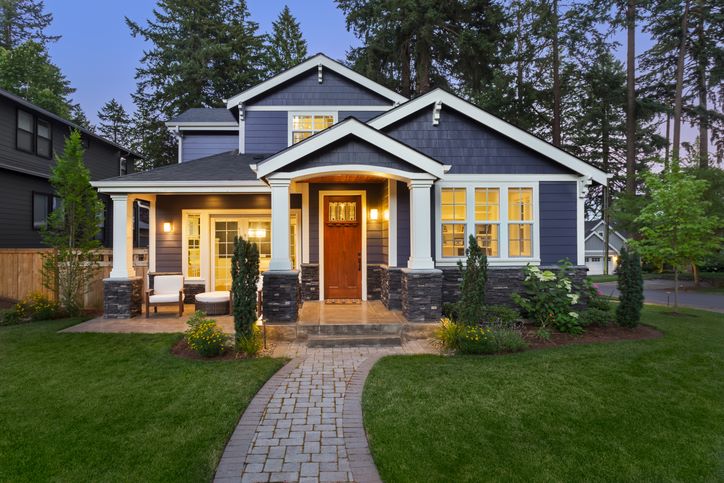
Homeownership is often synonymous with pride, stability, and the joy of creating a sanctuary. However, for many homeowners, it also means navigating the complex world of Homeowners Associations (HOAs). These associations, while intended to maintain community standards and amenities, can sometimes lead to contract violations, remodeling disputes and legal battles. One common question that arises in such situations is, “Can a homeowner sue their HOA?” In this comprehensive guide, we’ll explore the intricacies of this question, shedding light on when and how homeowners can take legal action against their HOA in Nevada.
Understanding Homeowners Associations (HOAs)
Before delving into the legal intricacies, let’s establish what exactly a Homeowners Association is. An HOA is typically formed by a real estate developer to manage and maintain common areas and amenities within a community or neighborhood. Upon purchasing a property within an HOA, homeowners automatically become members and are required to adhere to the HOA’s rules and regulations, often outlined in governing documents such as CC&Rs (Covenants, Conditions, and Restrictions) and bylaws.
Top Reasons HOAs Get Sued
Despite their intentions of fostering a harmonious community, HOAs can find themselves embroiled in legal disputes with homeowners. Some of the most common reasons for lawsuits against HOAs include:
Enforcement Disputes: Differences in interpretation or selective enforcement of HOA rules and regulations can lead to conflicts between homeowners and the community association.
Violation of CC&Rs: When an HOA fails to enforce or selectively enforces its rules.
Maintenance and Repairs: Issues concerning the maintenance and repair of common areas or shared facilities may result in disputes over responsibility and liability.
Financial Mismanagement: Allegations of financial mismanagement or improper use of HOA funds can prompt legal action from homeowners seeking accountability.
Discrimination: HOAs must adhere to anti-discrimination laws, and allegations of discriminatory actions or policies can lead to legal challenges.
Violation of Rights: Homeowners may sue their HOA if they believe their rights, such as the right to peaceful enjoyment of their property, have been infringed upon.
Common Types of Small Claims Lawsuits Against HOAs
In Nevada, small claims court is often the venue for resolving disputes between homeowners and HOAs. Some common types of small claims lawsuits filed against HOAs include:
Failure to Maintain Common Areas: Homeowners may sue the HOA for neglecting to properly maintain common areas, such as landscaping or recreational facilities.
Disputes Over HOA Fees: Allegations of excessive or unjustified HOA fees can lead to small claims lawsuits seeking reimbursement or clarification.
Enforcement of Covenants: Disputes over the enforcement of HOA covenants, including architectural guidelines or restrictions on property use, may result in legal action.
Property Damage: If a homeowner believes that the HOA’s actions or negligence have caused damage to their property, they may file a lawsuit to recover damages.
Steps to Take Before Suing an HOA
Before pursuing legal action against an HOA, homeowners should consider the following steps:
Review Governing Documents: Familiarize yourself with the HOA’s governing documents, including CC&Rs and bylaws, to understand your rights and obligations.
Attempt Alternative Dispute Resolution: Explore alternative dispute resolution methods, such as mediation or arbitration, to resolve the issue amicably before resorting to litigation.
Document Everything: Keep detailed records of communication with the HOA, including emails, letters, and meeting minutes, as evidence may be crucial in a legal proceeding.
Seek Legal Counsel: Consult with an attorney who specializes in HOA disputes to assess the strength of your case and explore your legal options.
Can an HOA Commit Negligence?
Homeowners may wonder whether an HOA can be held liable for negligence. The answer is yes, under certain circumstances. An HOA has a duty to exercise reasonable care in maintaining common areas and providing services to its members. If the HOA breaches this duty, resulting in harm to a homeowner, the homeowner may have grounds to sue for negligence.
Will HOA Board Members Be Held Liable?
HOA board members are generally protected from personal liability for actions taken in good faith within the scope of their duties. However, if a board member acts negligently or breaches their fiduciary duty to the association, they may be held personally liable for resulting damages. It’s essential for board members to act in the best interests of the entire community and adhere to their fiduciary responsibilities.
Suing HOA for Negligence – When Can I Do It?
Homeowners can sue their HOA for negligence when the association fails to fulfill its duty of care, resulting in harm or damages. Examples of situations where negligence claims may arise include:
Failure to maintain common areas, leading to accidents or injuries.
Negligent hiring or supervision of contractors, resulting in substandard work or property damage.
Failure to address safety hazards or environmental concerns within the community.
How Can a Homeowner Sue Their HOA?
If alternative dispute resolution methods have been exhausted, and the homeowner decides to pursue legal action against their HOA, the following steps may be involved:
File a Complaint: The homeowner files a complaint in small claims court or district court, outlining the grounds for the lawsuit and the relief sought.
Serve the HOA: The HOA must be served with a copy of the complaint and summons, providing notice of the legal action.
Discovery: Both parties engage in the discovery process, exchanging relevant information and evidence to prepare their case.
Mediation or Settlement: The parties may attempt mediation or settlement negotiations to resolve the dispute without a trial.
Trial: If no settlement is reached, the case proceeds to trial, where evidence is presented, and a judge or jury renders a verdict.
Enforcement of Judgment: If the homeowner prevails in the lawsuit, they may seek enforcement of the judgment, which could include monetary damages or injunctive relief.
Who Pays When a Nevada HOA Loses a Lawsuit?
When an HOA loses a lawsuit, the responsibility for paying damages typically falls on the association itself. HOAs often maintain insurance coverage to protect against liability for legal claims, including negligence lawsuits. However, depending on the terms of the insurance policy and the nature of the claim, the association may be required to pay a deductible or face premium increases.
How an Attorney Can Help You in This Case
When considering legal action against your homeowner association (HOA), enlisting the assistance of an attorney specializing in HOA disputes can significantly enhance your chances of a successful outcome. These legal professionals offer a range of essential services tailored to your specific situation, ensuring that your rights are protected and that you receive expert guidance throughout the process. Let’s explore how an attorney can support you:
Knowledge of HOA Laws and Regulations: Attorneys are well-versed in HOA laws and regulations and can interpret governing documents to assess whether the HOA has violated any provisions.
Assessment of Your Case: Attorneys analyze your situation, review evidence, and provide an objective evaluation of your legal standing to determine the likelihood of success.
Alternative Dispute Resolution: Attorneys explore mediation or arbitration as efficient and cost-effective ways to resolve disputes before pursuing litigation, representing you in negotiations.
Preparation of Legal Documents: Before filing a lawsuit, the governing documents of the HOA must first undergo alternative dispute resolution with the Nevada Real Estate Division. Attorneys handle the accurate preparation and filing of legal paperwork required for litigation, minimizing procedural errors.
Representation in Court: Attorneys advocate for you in court proceedings, presenting your case persuasively and protecting your interests.
Negotiation Skills: Attorneys negotiate with the HOA’s legal counsel to reach a settlement that meets your needs, leveraging their expertise in HOA laws.
Protection of Your Rights: Attorneys act as a buffer between you and the HOA, ensuring fair treatment and protecting your rights throughout the process.

Discover Your Legal Options Today with BLG: Let’s Resolve Your HOA Dispute Together!
In conclusion, while the relationship between homeowners and HOAs is generally cooperative, disputes can arise, necessitating legal intervention. Homeowners in Nevada have legal rights and recourse if they believe their HOA has acted negligently or breached its obligations. By understanding the relevant state laws and procedures, homeowners can effectively assert their rights and seek resolution to disputes with their HOA.
If you find yourself in a dispute with your HOA, it’s essential to seek legal guidance from an attorney well-versed in HOA law to protect your interests and ensure a fair outcome. Don’t go it alone, partner up with BLG, where your rights as a homeowner are our top priority. Whether you’re facing disputes, negligence, or breaches of contract, our experienced attorneys are here to guide you every step of the way. Let’s protect your home and community together.
Contact BLG today for a free consultation.




